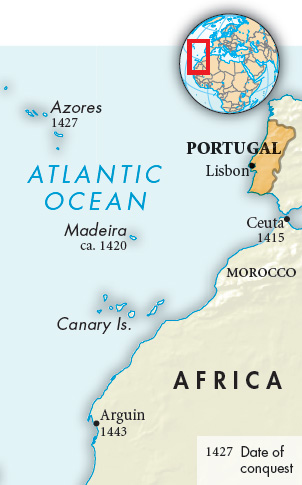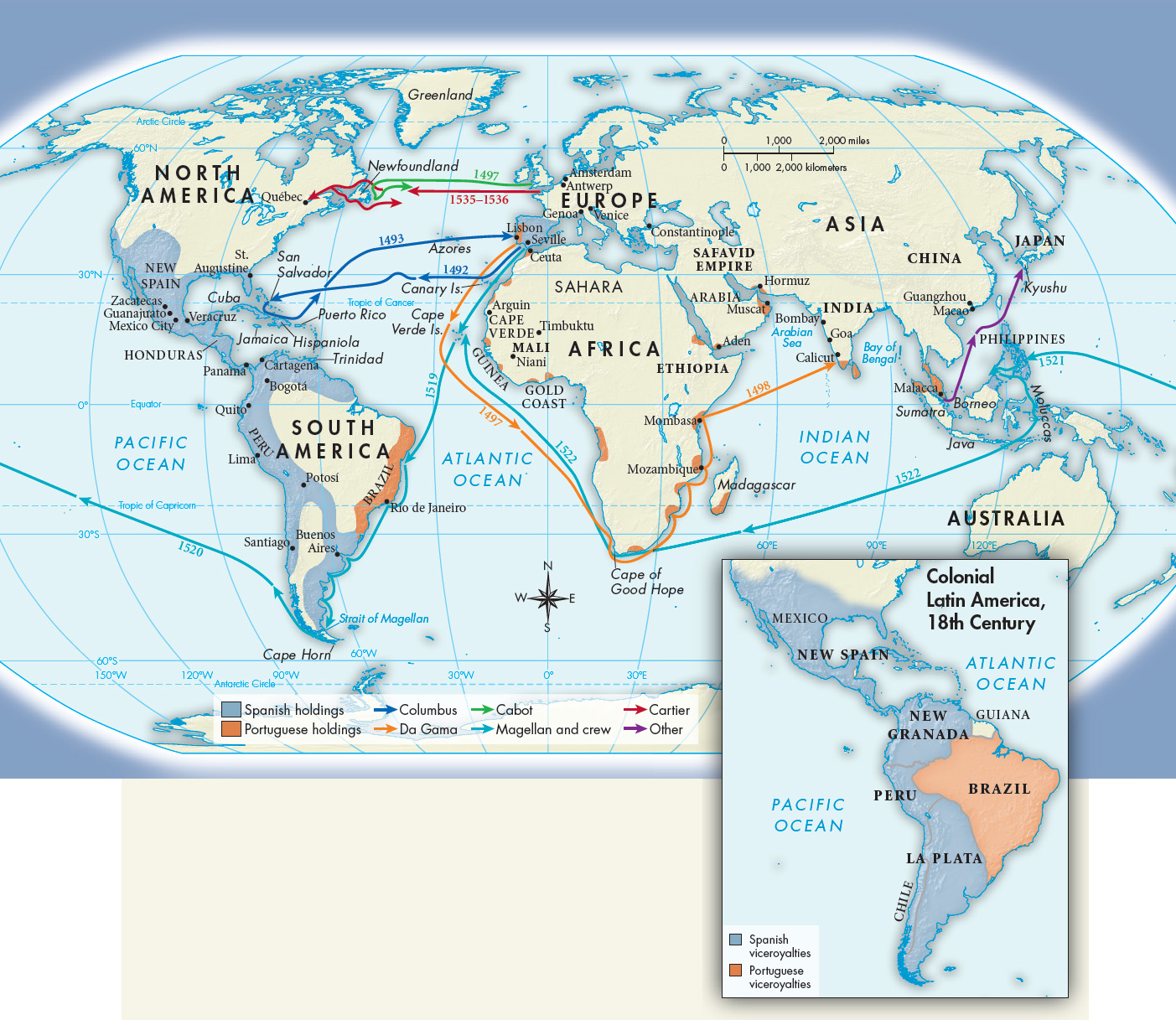The Expanding Portuguese Empire

Portugal was a small and poor nation on the margins of European life. Yet Portugal had a long history of seafaring and navigation. Blocked from access to western Europe by Spain, the Portuguese turned to the Atlantic, whose waters they knew better than did other Europeans.
In the early phases of Portuguese exploration, Prince Henry (1394–1460), a younger son of the king, played a leading role. A nineteenth-century scholar dubbed Henry “the Navigator” because of his support for the study of geography and navigation and for the annual expeditions he sponsored down the western coast of Africa.
Portugal’s conquest of Ceuta, an Arab city in northern Morocco, in 1415 marked the beginning of European overseas expansion. In the 1420s, under Henry’s direction, the Portuguese began to settle the Atlantic islands of Madeira (ca. 1420) and the Azores (1427). In 1443 they founded their first African commercial settlement at Arguin in North Africa. By the time of Henry’s death in 1460, his support for exploration was vindicated by thriving sugar plantations on the Atlantic islands, the first arrival of enslaved Africans in Portugal (see page 425), and new access to African gold.
The Portuguese next established trading posts and forts on the gold-rich Guinea coast and penetrated into the African continent all the way to Timbuktu (Map 16.2). By 1500 Portugal controlled the flow of African gold to Europe.

The Portuguese then pushed farther south down the west coast of Africa. In 1487 Bartholomew Diaz (ca. 1451–1500) rounded the Cape of Good Hope at the southern tip, but was forced to turn back. A decade later Vasco da Gama (ca. 1469–1524) succeeded in rounding the Cape while commanding a fleet in search of a sea route to India. With the help of an Indian guide, da Gama reached the port of Calicut in India. He returned to Lisbon with spices and samples of Indian cloth. Thereafter, a Portuguese convoy set out for passage around the Cape every March.
Lisbon became the entrance port for Asian goods into Europe, but this was not accomplished without a fight. Muslim-controlled port city-states had long dominated the rich spice trade of the Indian Ocean, and they did not surrender it willingly. Portuguese conquest of a number of these cities laid the foundation for Portuguese imperialism in the sixteenth and seventeenth centuries. The acquisition of port cities and their trade routes brought riches to Portugal but had limited impact on the lives of Asian peoples beyond Portuguese coastal holdings. In the meantime, Spain also had begun the quest for an empire.